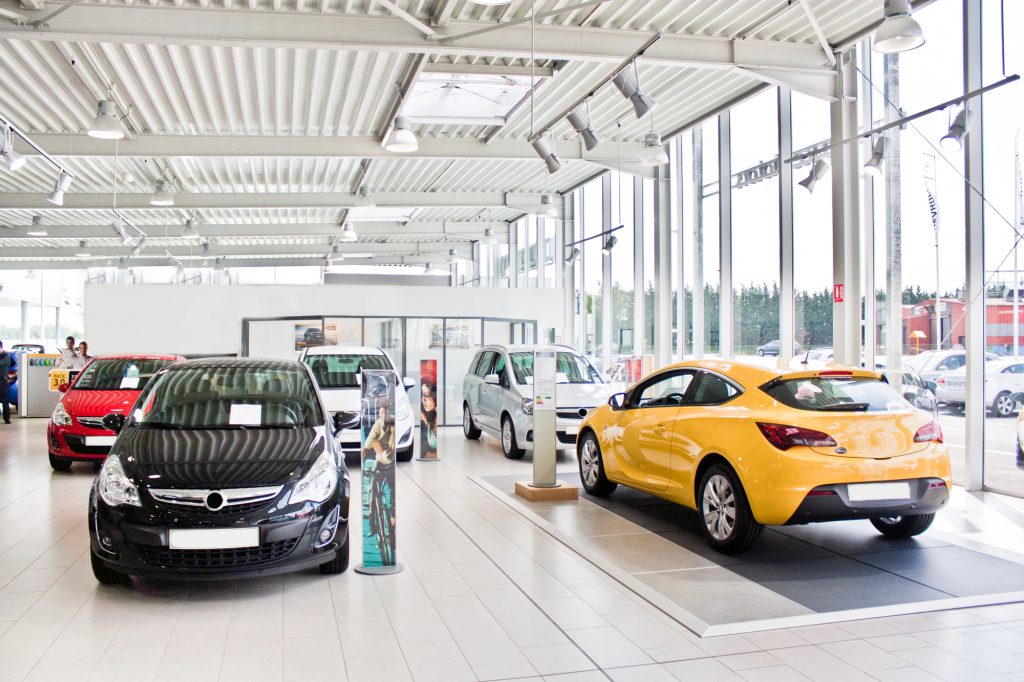The car buying landscape is undergoing a massive transformation due to shifting economic factors. Rising interest rates, supply chain disruptions, and evolving consumer preferences are reshaping the way people purchase vehicles. Automakers are adapting to new trends, while buyers face changing financial realities and alternative ownership models. Innovations in financing, production, and technology are also contributing to this unprecedented shift.
Interest Rates are Making Car Loans Less Affordable

Higher interest rates are increasing the overall cost of financing a vehicle, making monthly payments harder to manage. Many buyers are reconsidering traditional loans in favor of leasing or alternative financing options. This shift is forcing automakers and dealerships to rethink pricing strategies to keep sales moving.
Subscription Services are Gaining Popularity

Car subscription services are becoming a preferred alternative to traditional ownership, offering flexibility and lower upfront costs. These services allow consumers to switch vehicles more frequently without the burden of long-term loans. As affordability remains a concern, more buyers are embracing this model.
Used Car Prices are Stabilizing After Skyrocketing

The used car market, which saw record-high prices during supply chain shortages, is now cooling off. Buyers who previously overpaid for used vehicles are seeing prices level out, leading to more reasonable deals. This shift is encouraging consumers to consider pre-owned vehicles again.
Leasing Is Making a Comeback

With higher interest rates making auto loans more expensive, leasing is regaining traction as a viable option. More consumers are opting for leases to avoid long-term financial commitments while still enjoying new vehicles. This trend is pushing manufacturers to offer more attractive lease deals.
Related: 11 Mind Blowing Ways 5G is Revolutionizing Driving
Direct-to-Consumer Sales are Increasing

Automakers like Tesla are bypassing dealerships and selling directly to customers, changing the traditional car-buying experience. This approach eliminates dealership markups and gives buyers a more transparent pricing model. Other manufacturers are exploring similar strategies to stay competitive.
Related: 14 Jaw Dropping Reasons Your Car Keys Might Disappear Sooner Than You Expect
Online Car Buying is Becoming the Norm

Consumers are increasingly comfortable purchasing vehicles online, with digital platforms offering end-to-end buying solutions. Virtual showrooms, online financing, and home delivery services are making the process more convenient. This digital shift is reducing the need for in-person dealership visits.
Related: 15 Ways AI Is Silently Revolutionizing Car Performance Tuning Behind The Scenes
Automakers are Prioritizing Affordability

As financial pressures grow, car manufacturers are focusing on producing more budget-friendly models. Smaller, fuel-efficient vehicles and simplified features are gaining popularity among cost-conscious buyers. This shift is changing the types of cars available in the market.
Related: 11 Crazy Things Smart Tires Can Do
Ride-Sharing and Car-Sharing are Reducing Ownership Rates

The rise of services like Uber, Lyft, and Zipcar is making car ownership less necessary for urban dwellers. Many consumers are choosing to rely on shared mobility rather than dealing with the expenses of owning a car. This trend is particularly strong among younger generations who prioritize flexibility over ownership.
Related: 11 Hidden Downsides Of Minimalist Car Interiors No One Is Talking About
Consumer Expectations are Shifting Toward Sustainability

Environmental concerns are driving many buyers to seek eco-friendly vehicle options. Sustainable materials, fuel efficiency, and emissions reductions are becoming key factors in purchasing decisions. Automakers are adapting by introducing greener technologies and sustainable production practices.
Related: 13 Insane Ways Scientists Are Growing Car Parts Like Living Organisms
Global Economic Trends are Influencing Car Prices

The global economy, including factors like trade policies and currency fluctuations, is impacting car prices worldwide. Automakers are adjusting their pricing models based on economic conditions in different regions. This interconnected market is shaping the way vehicles are priced and sold.
Related: 11 Hidden Downsides Of Algae Biofuels No One Is Talking About
Gas-Powered Vehicles are Facing Uncertainty

As emissions regulations tighten and EV adoption grows, the future of gas-powered cars is uncertain. Some automakers are gradually phasing out internal combustion engines in favor of hybrids and electrics. Buyers concerned about resale value are carefully considering their options.
Related: 12 Astonishing Dodge Convertibles That Ruled The Roads
Autonomous Features are Becoming a Selling Point

Advanced driver-assistance systems and semi-autonomous features are becoming more common, even in mid-range vehicles. Consumers are increasingly looking for safety and convenience technologies when shopping for a car. Automakers are integrating these innovations to appeal to tech-savvy buyers.
Related: 11 Unstoppable Legacy Of Renault In Formula 1
Inflation is Affecting Vehicle Maintenance Costs

As the cost of parts and labor rises, maintaining a vehicle is becoming more expensive. Many consumers are factoring maintenance expenses into their purchasing decisions, favoring models with lower long-term costs. This shift is making reliability a top priority for buyers.
Related: 11 Unstoppable Legacy Of Renault In Formula 1
The economic landscape is reshaping the way people buy cars, from financing options to shifting consumer priorities. Rising costs and emerging alternatives are pushing the industry toward innovation and affordability. Automakers are adapting to these trends by exploring new sales models and sustainable solutions. Buyers, in turn, are reevaluating traditional ownership and embracing flexible alternatives.
Disclaimer: This list is solely the author’s opinion based on research and publicly available information.
13 Reasons People Are Ditching Car Payments for Ride-Sharing and Rentals

Owning a car is becoming less appealing as high costs, maintenance headaches, and restrictive financing push people toward alternative transportation options. With the rise of ride-sharing, flexible rentals, and subscription based mobility, more drivers are questioning whether car ownership is even necessary. From financial savings to lifestyle freedom, here’s why many are ditching car payments for good.
Read it here: 13 Reasons People Are Ditching Car Payments for Ride-Sharing and Rentals
11 Startling Reasons People Still Don’t Trust Self-Driving Cars

Self-driving cars promise to revolutionize transportation by offering convenience, efficiency, and safety. However, despite rapid advancements in artificial intelligence and automation, many people remain skeptical about fully autonomous vehicles. Concerns over technology failures, ethical dilemmas, and real-world safety challenges prevent widespread acceptance. Here are 11 startling reasons why people still don’t trust self-driving cars.
Read it here: 11 Startling Reasons People Still Don’t Trust Self-Driving Cars
14 Ways Social Media Is Changing How You Buy Cars

Social media has revolutionized how consumers search for, compare, and purchase vehicles. Platforms like Instagram, Facebook, and TikTok provide instant access to real-time car reviews, pricing information, and exclusive deals. Buyers can now interact directly with dealerships, manufacturers, and other car enthusiasts to make well informed decisions.
Read it here: 14 Ways Social Media Is Changing How You Buy Cars
You’ll love these related posts:
- 12 Reasons Compact Pickups Are Making A Huge Comeback
- 12 Stunning Ways Solar-Powered Cars Will Change How We Buy And Drive
- 13 Eye-Opening Truths About Full-Time Van Travel That Will Blow Your Mind
- 11 Eco Friendly Materials That Are Revolutionizing Car Design
- 14 Insanely Fast Cars Owned By Superstar Athletes


